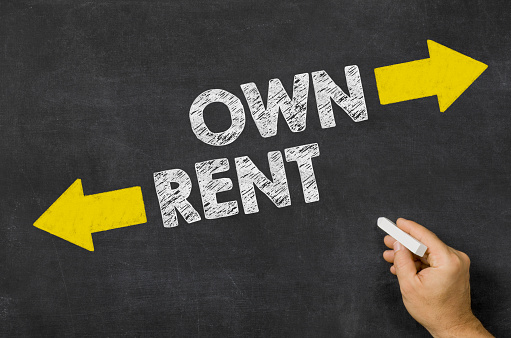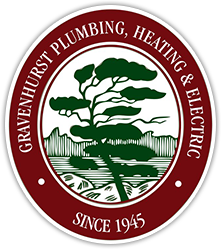Click here to Subscribe to Chips Tips Blog
The Benefits of Renting Versus Owning Your HVAC Equipment

Home spaces today come in all shapes and sizes. For instance, some homeowners like the modern, contemporary look, while others prefer a rustic, outdoorsy vibe. But regardless of how different your home may look from your neighbor's, you can always find one thing to commiserate about: the costs of home ownership.
In other words, owning a home is expensive! From routine maintenance to emergency repairs, unexpected weather damage to that first time your teen driver makes contact with your garage door (literally), if you own a home, you already know there is always something you could be fixing, maintaining, or updating.
So when it comes to major repairs to or replacements of your air conditioning and heating, it helps to consider whether buying or renting a new unit makes more sense costwise. In this post, we share our expert insights about the benefits of renting versus owning your HVAC equipment and how to decide.
What Happens When You Buy a New HVAC Unit
First things first: there is absolutely nothing wrong with simply buying a new HVAC unit outright!
In fact, we consult with our clients every day about the pros and cons of purchasing this unit versus that unit. We also regularly assist our clients by talking through warranty and service agreements and helping with installations and maintenance for brand-new units.
One aspect we specifically like to emphasize is that your responsibilities will be different when you buy a new HVAC unit outright than if you rent a unit that you will eventually relinquish back to the rental company.
When you own a unit, you are responsible for:
-
Vetting the warranty to be sure it offers the most comprehensive coverage (versus what other distributors are offering for the same unit)
-
Ensuring maintenance and repairs can be handled by local contractors, and that there is a system in place for handling unsatisfactory repairs
-
Reviewing user testimonials to be sure the unit can live up to its distributor's claims
-
Maintaining and repairing the unit as needed (or hiring a contractor to do so) so as not to void the warranty and/or incur extra costly repair charges
-
Purchasing replacement filters and parts as needed for maintenance and repairs
What Happens When You Rent a New HVAC Unit
In some situations, it can make sense to consider renting air conditioning and/or heating equipment.
This especially holds true if you plan to occupy the home for just a short time or if your budget simply won't stretch to cover another major purchase.
When you rent a unit, you are responsible for:
-
Selecting a reputable rental company to do business with
-
Understanding what your monthly rental fee includes (just the equipment only, maintenance and routine repairs, emergency service, replacement filters and parts, etc.)
-
Understanding what happens if you need to get out of your contract early for any reason (say, if you have to move for your job); is there an early-termination penalty, and if so, are there reasons excluded from that penalty?
-
Calculating the total estimated rental cost over the time you will need it and deciding whether it makes better financial sense to rent versus own the unit.
A "Rent Versus Own" Example
Here at Gravenhurst Plumbing, Heating & Electric, we offer HVAC units both for purchase and for rent. We do this because we know there is no "one size fits all" option—some of our clients will be best served through owning, while others will find renting to be a better choice.
For the sake of this example, let's say you are considering a particular HVAC unit that retails for $3,000. You are trying to decide whether to purchase or rent the unit. You know there is no right or wrong answer, just what is right for you in your current home ownership and financial situation.
You have three options:
-
Buy the unit outright for cash.
-
Finance the unit with interest.
-
Rent the unit for a flat rate per month.
Buy the unit outright
In this situation, you plunk down $3,000 to buy the unit. You plan to apply for energy efficiency rebates at tax time to try to reduce your total investment. In the meantime, you have some additional costs that won't wait:
-
Installation fee (one time)
-
Maintenance fee (annual plan)
-
Filter replacement cost (per month)
-
Depreciation (annual basis)
Total costs: $3,000+.
Finance the unit
You can also opt to purchase the unit outright by applying for financing rather than paying cash up front. In this case, you will get a much lower monthly cost, but you will also have to pay interest on the unpaid balance. Plus, you will still have all of the additional costs of owning a unit as detailed here.
Total costs: $3,000+.
Rent the unit
When you decide to rent the new unit instead of purchase it, your costs immediately go way down. Instead of having to pay interest on the financed cost or fork over the cash to buy the unit outright, you will have a flat-rate monthly payment over the lifetime of the contractual period.
Typically, each of the following is included in a quality rental agreement (which is why it is important to read the rental contract very carefully!):
-
Installation
-
Maintenance and repairs
-
Replacement filters
-
Option to renew with perks
Total costs: $15/month for the life of the contract (so, for one year of renting, this would add up to a flat amount of $180).
Contact Gravenhurst Today
If you are trying to decide whether to buy or rent a replacement HVAC unit, we can help! Call us at 877-885-3403 or contact us online.

